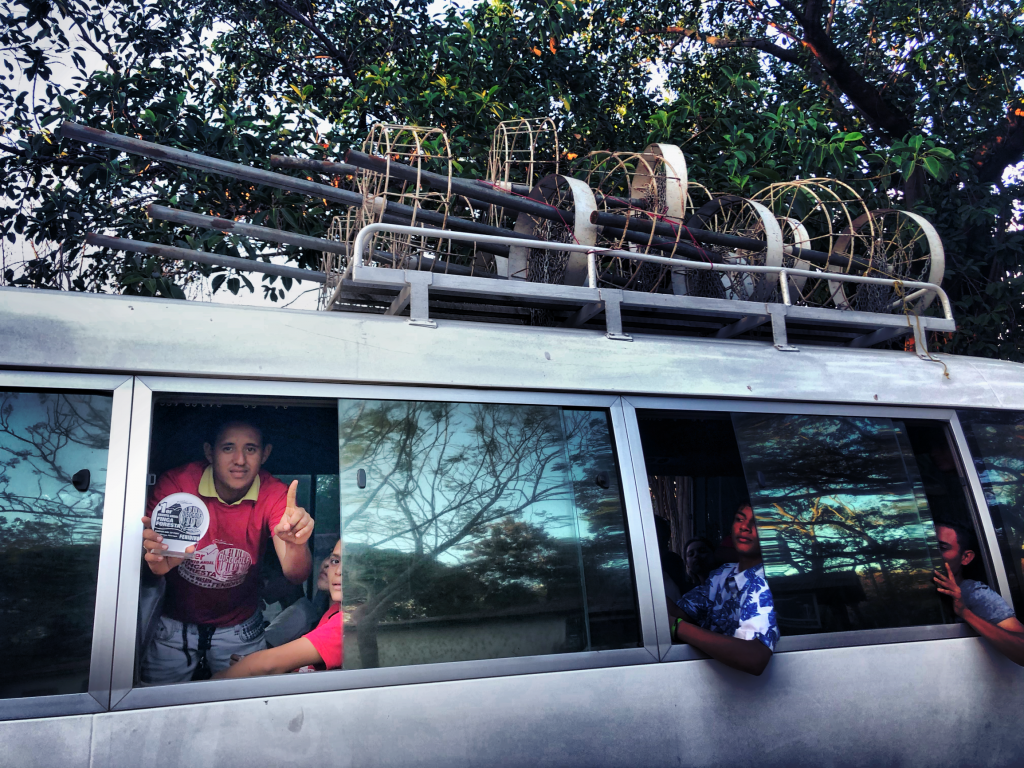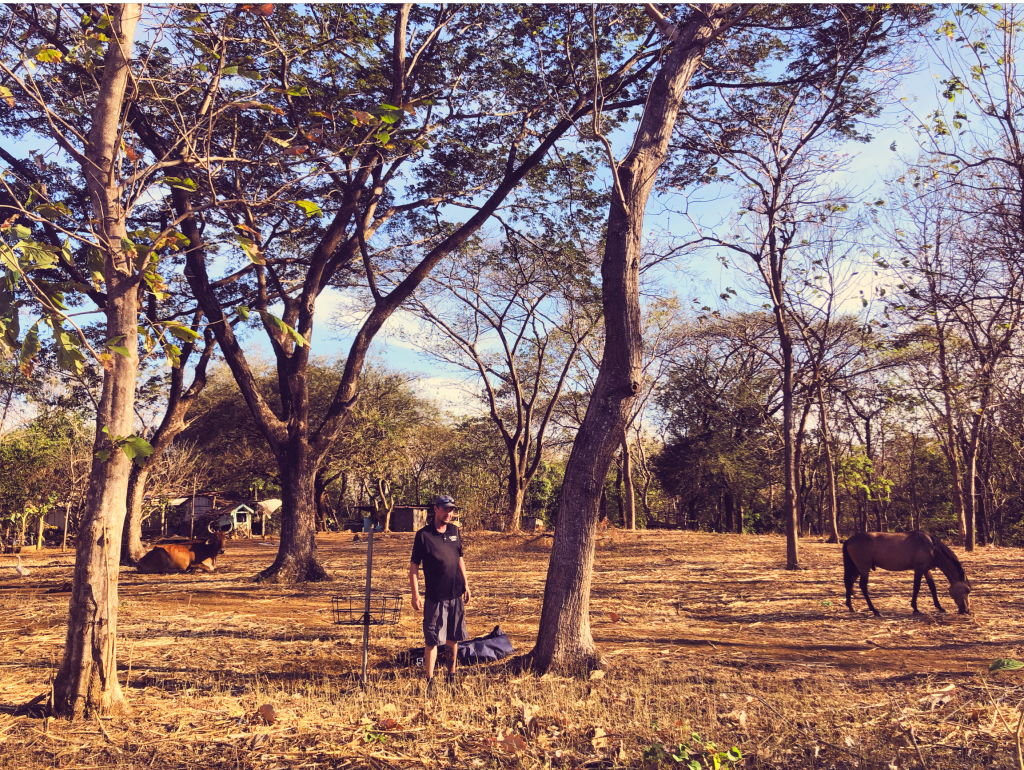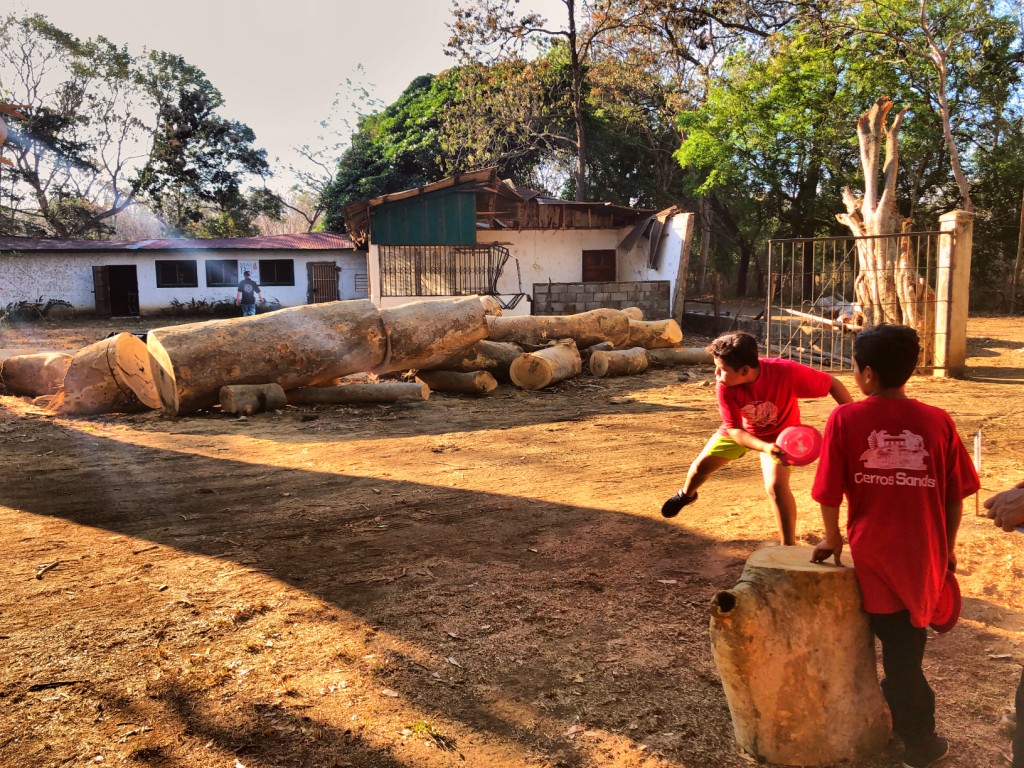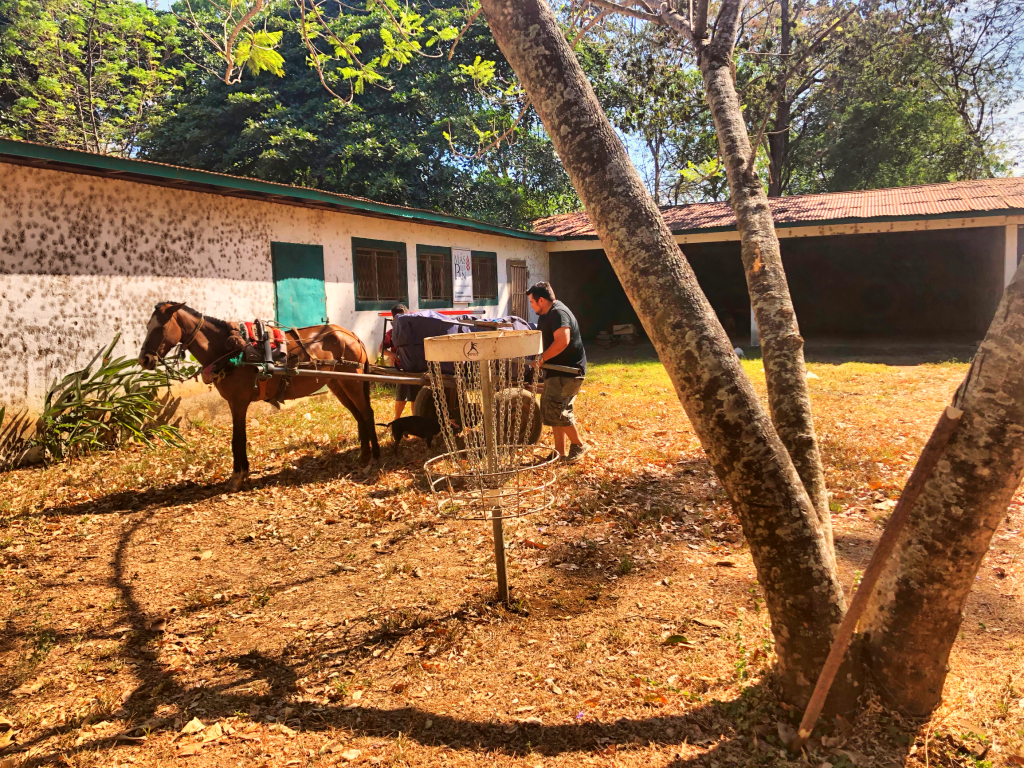Originally published at: https://discgolf.ultiworld.com/2020/04/02/organizing-central-americas-largest-disc-golf-tournament/
 1st Annual Finca Foresta Open. Photo: Bjarnason
1st Annual Finca Foresta Open. Photo: Bjarnason
San Diego transplant Chris Leonard runs a resort in Cerros Sands, Belize, where he is currently installing the country´s first public 18 hole disc golf course.
I first became aware of Chris through Instagram, and he introduced me to Sam Abdias, president of the Nicaraguan Flying Disc Federation (Fenidivo), who is the driving force of disc golf growth in Central America.
Wanting to expand on my annual travels to the Open de Espana in a similar fashion as with last year´s Brazilian adventure, and to assist with the spread of the sport South of the Wall, the three of us hatched a last minute plan. We’d put together a series of clinics, PR appearances on Nicaraugua’s many TV and radio morning shows, and the main event, the 1er Abierto Finca Foresta Driven by Innova, which came to be the largest-ever PDGA-sanctioned event in Central America by many orders of magnitude.
 Setting up the 1st Annual Finca Foresta Open. Photo: Bjarnason
Setting up the 1st Annual Finca Foresta Open. Photo: Bjarnason
Unfortunately, some of the planned events never came to pass, and Chris had to hightail it out of Nicaragua the morning after the event to beat the many border closings in the region, so the following summary was conducted through e-mail a couple days later.
As for myself, coronavirus travel restrictions almost grounded me in indefinitely Nicauragua, but after many delays and a huge, unexpected bite out of my travel budget, I made it back to Iceland.
But it was all worth it to score my first ever MPO win.
Ultiworld Disc Golf: What were the main challenges involved in running a PDGA-sanctioned event in an underdeveloped disc golf scene?
Chris Leonard: There are two parts to this to me;
Biggest Challenges in Planning
- Knowing things are done and done the way we expected them to be.
- Language barrier: this affected the ability to understand and ensure instructions were clearly understood.
- Raising money from sponsors (this was only challenging in particular because of the limited time to get sponsors).
- Tournament entry costs: finding a reasonable amount to charge to the players to play the event, building a value based on that as well to have players turn over their or their families hard earned money.
- No experienced volunteers: this presented many challenges including having to host an educational summit with some of the volunteers prior to the event then again with all the volunteers the day of.
Biggest Challenges Running the event
- Language barrier for me: with an interpreter you’re doubling the talk time and things get lost in translation
- The Spanish PDGA rule book hasn’t been updated since 2018. The rule book in print is also more than 40 pages long, which isn’t really convenient or even affordable to provide to players. With all new players who have never played a PDGA event it was a challenge. Watching YouTube videos doesn’t really show what’s going on behind the scenes or even what rules the players are playing by, much less be presented in the language of the players we were hosting.
 Juniors at the 1st Annual Finca Foresta Open. Photo: Bjarnason
Juniors at the 1st Annual Finca Foresta Open. Photo: Bjarnason
UWDG: As an experienced tournament director, what were your expectations coming into this event?
CL: I expected to come down and be able to share my knowledge developed volunteering under well established TD’s, as well as running my own events with the Federation’s leadership so they could make the jump and be able to run their own PDGA events going forward.
UWDG: How did the conditions on the ground measure up to these expectations?
CL: I definitely expected there to be some hurdles and issues, so I came down there prepared to handle whatever was thrown at me. I planned ahead for the worst case scenarios and I believe that helped us achieve what we did accomplish.
UWDG: What lessons did the event teach you about the preparedness of the local organization and the Nicaraguan scene at large?
CL: What they are able to do in rallying the players is impressive. Their ability to market the sport and work with the schools is awesome. The players are passionate and competitive which is a tribute to what they have done so far in their country.
I think after seeing the work that was put in both before our arrival and after we touched down put a lot of things in perspective. I look forward to seeing what they can accomplish over the next year.
UWDG: What do you think is the best way for Fenidivo to go forward from this point?
CL: Every Member of the Leadership Council should be a PDGA member and become certified. They have done a great job at outreach with the players of the country, but they need better resources to educate the players of the rules of competitive play. They have asked for continued aid with their event planning and I am going to stay on as a mentor for their program.
UWDG: Despite the many problems we encountered, the turnout for the event was massive. How do you think this bodes for the future growth of the sport in the country and which practices do you plan to adopt in growing the sport in Belize?
CL: Problems aside, I agree the turnout was impressive. The future of disc golf in Nicaragua is in the hands of the Federation and they definitely seem interested in improving and figuring things out.
When I moved to Belize I had a good idea of what I wanted to do with schools and developing the country’s interest in this sport and seeing what they have done has confirmed that I am on the right path.
UWDG: Any additional closing thoughts?
CL: Two.
- The Lack of PDGA presence in the disc golf federation is a major issue with the growth of competitive disc golf in Central America. With the leadership of these federation having little to no idea of the rules and being given equipment and grants I expected some amount of follow through with the Federation on the PDGA’s end to ensure the Federation’s success.
- As new federations are formed, the leadership should be brought into a program online where they are instructed and taught the proper etiquette and rules. This should transition into a mentorship program where they can then be certified and Co-TD an event with a qualified TD leading it. This was my intention and process when I took this on, to ensure Sam Abdias could successfully lead an event after working with me from the start to the finish.
 Setting up the 1st Annual Finca Foresta Open. Photo: Bjarnason
Setting up the 1st Annual Finca Foresta Open. Photo: Bjarnason
